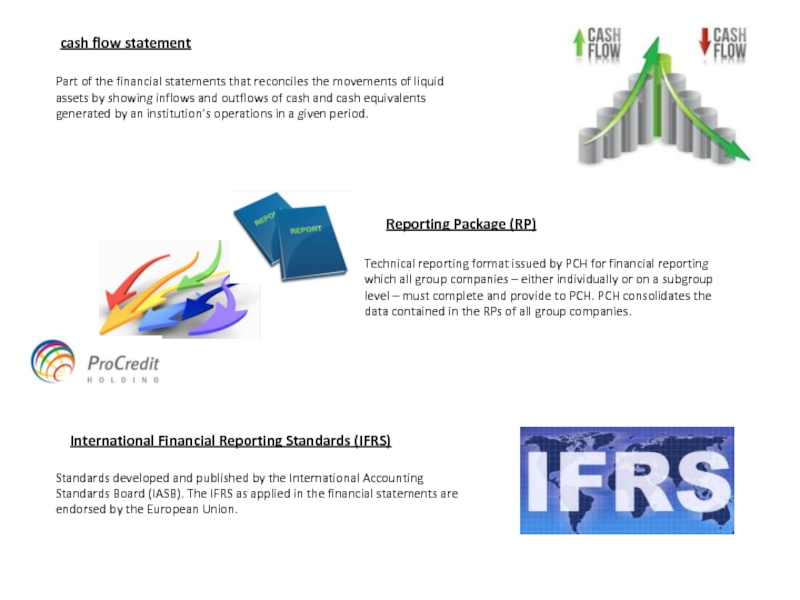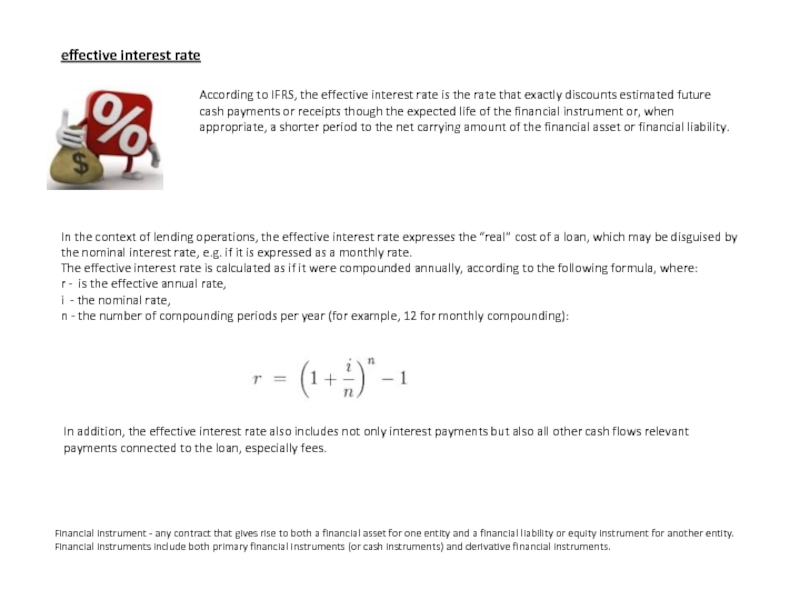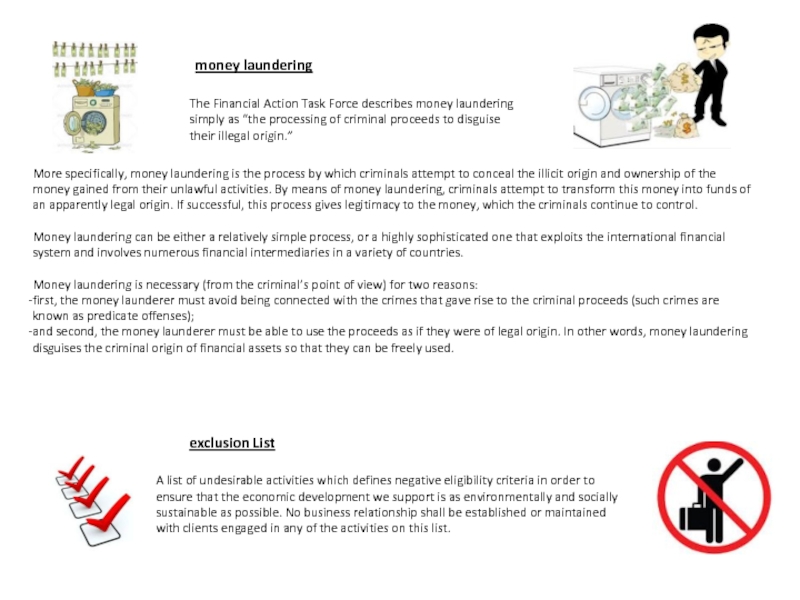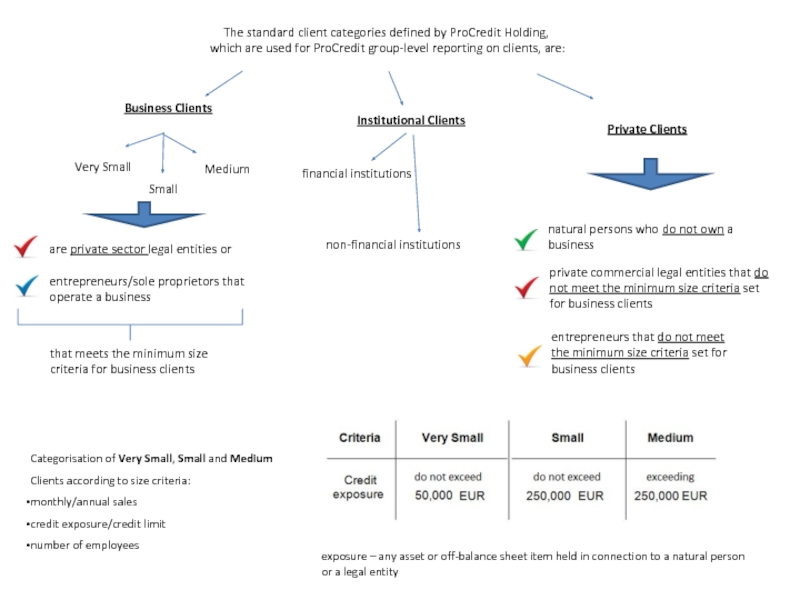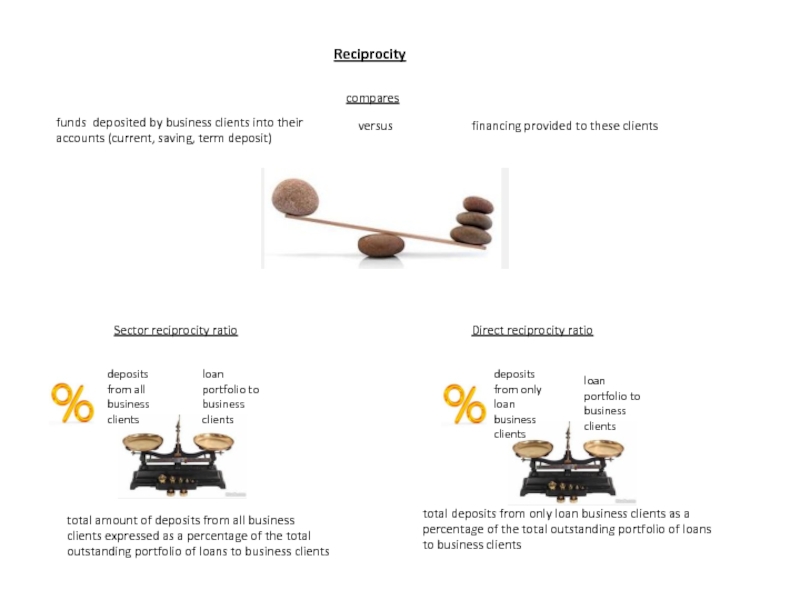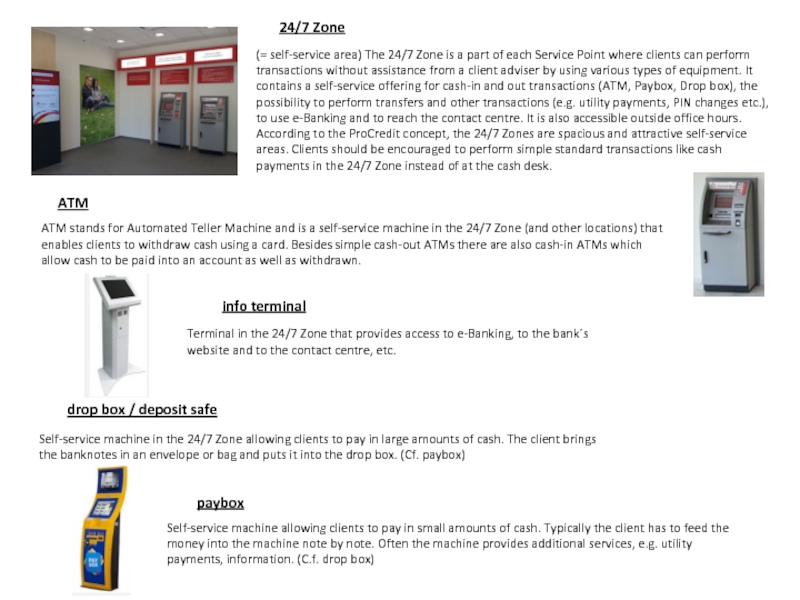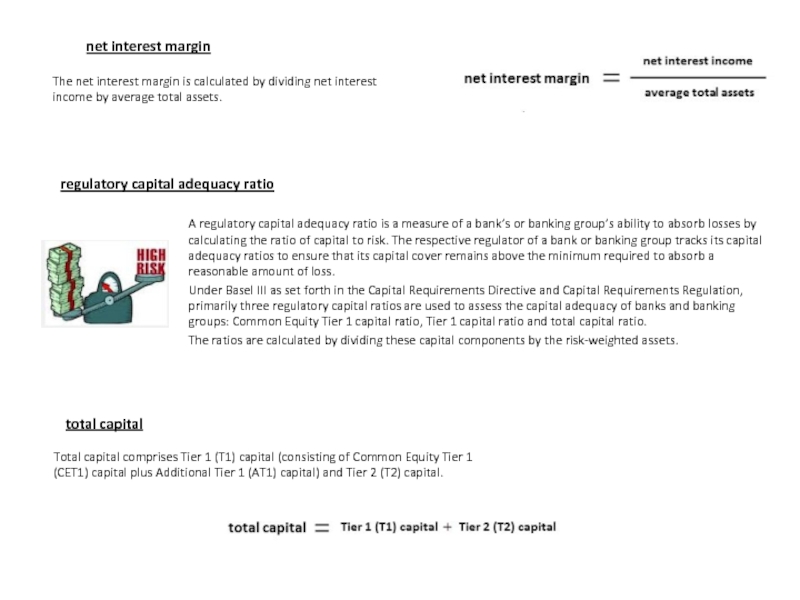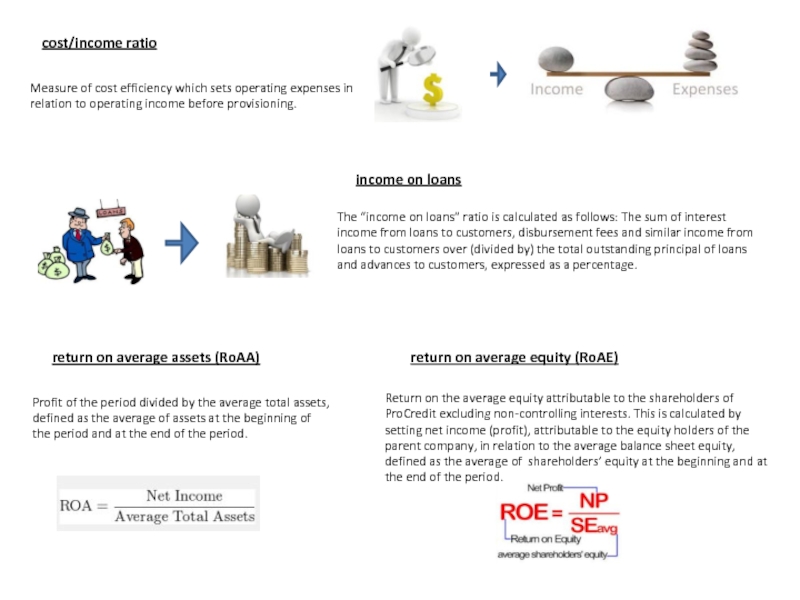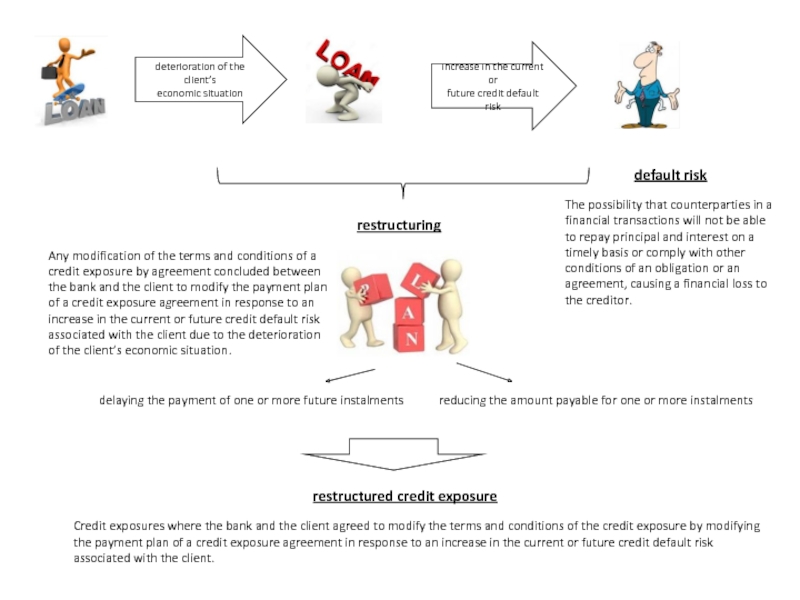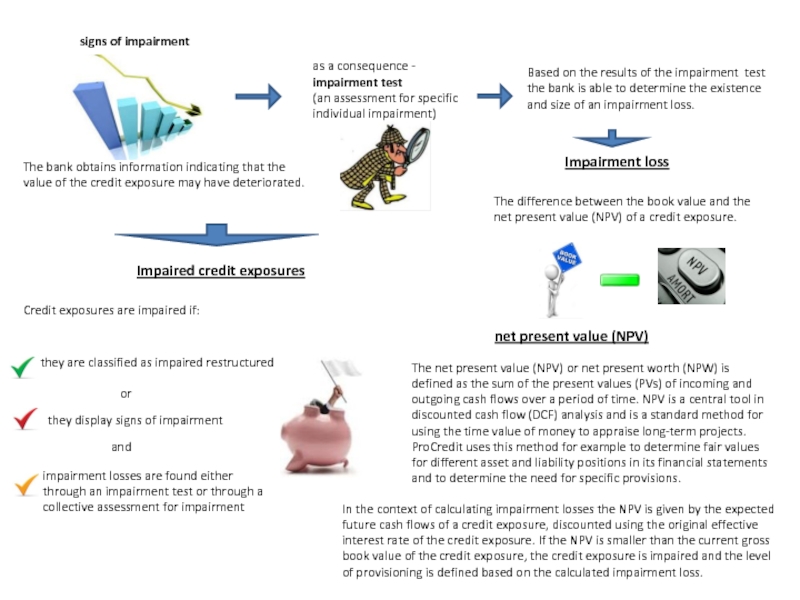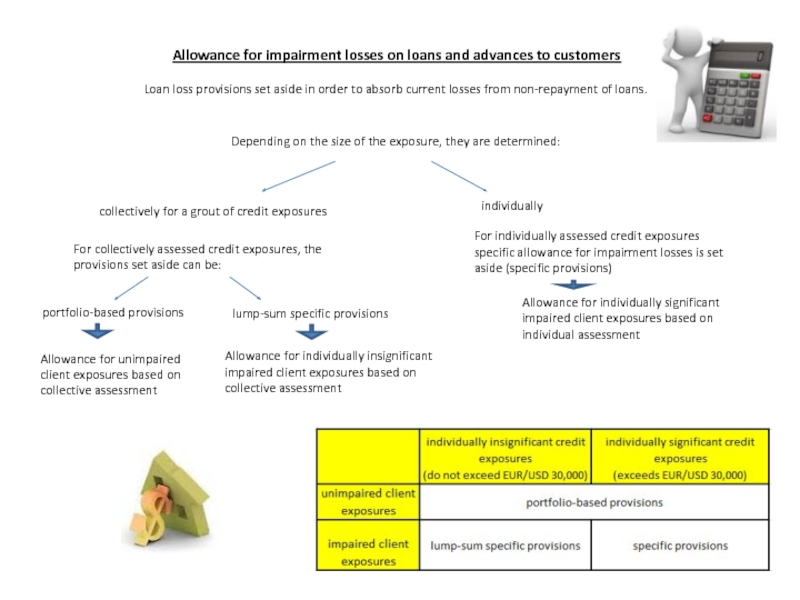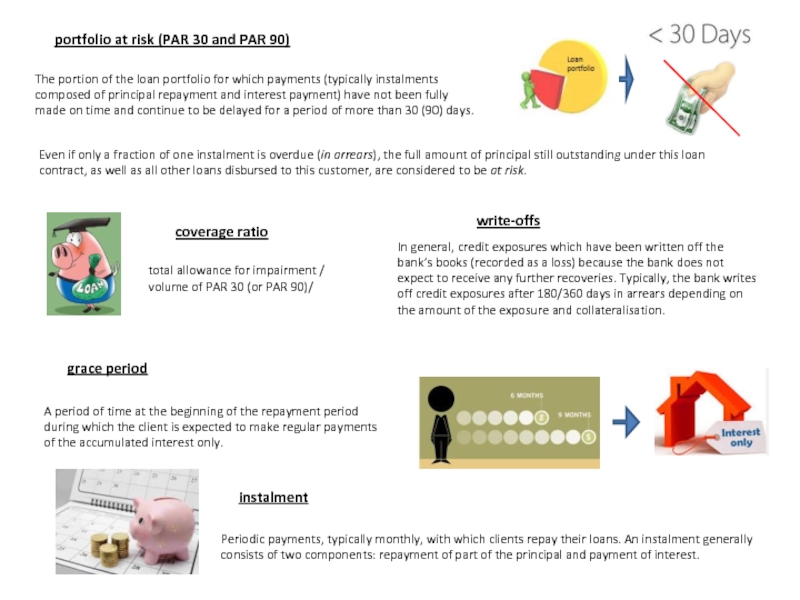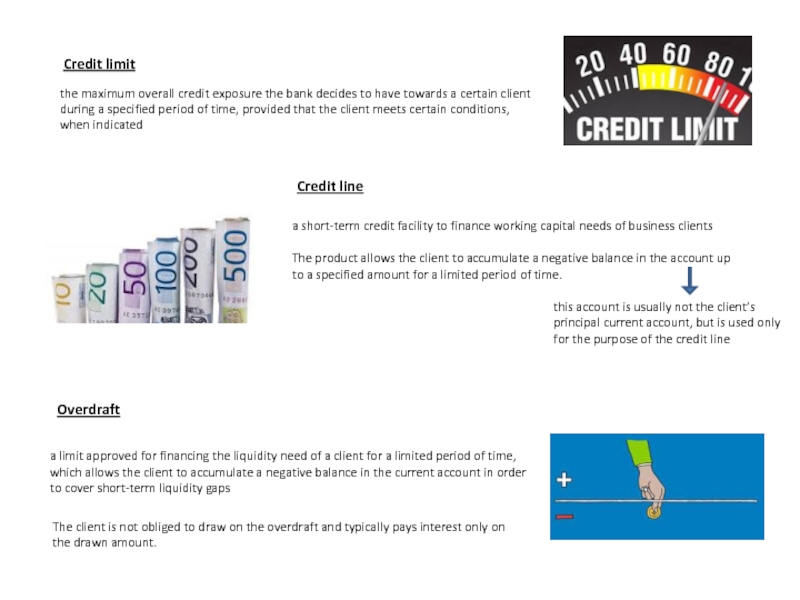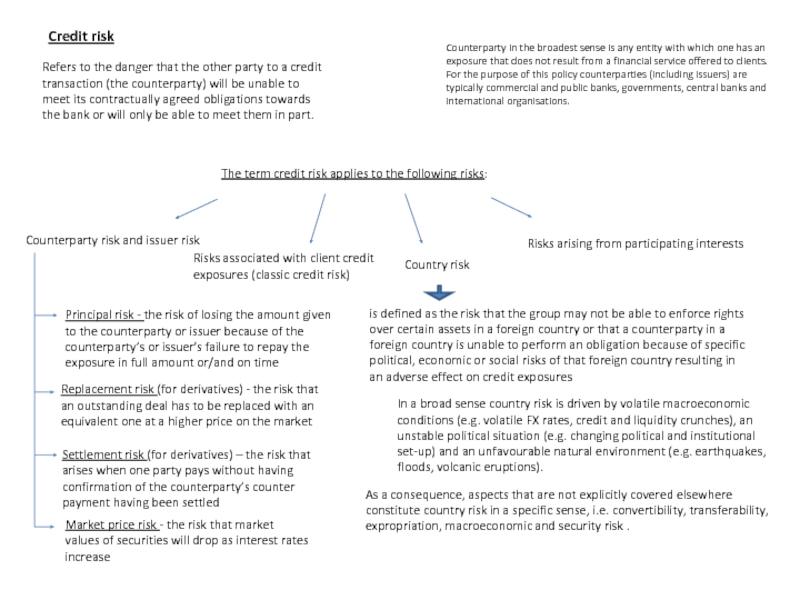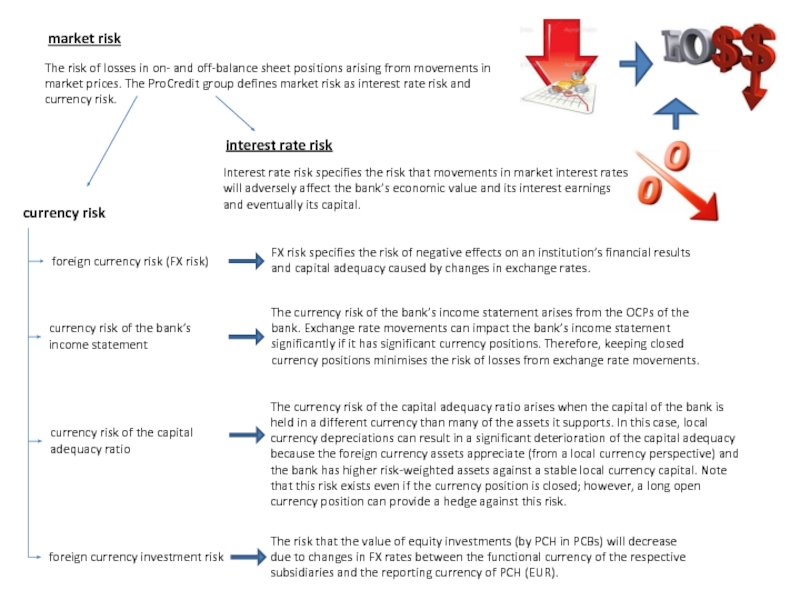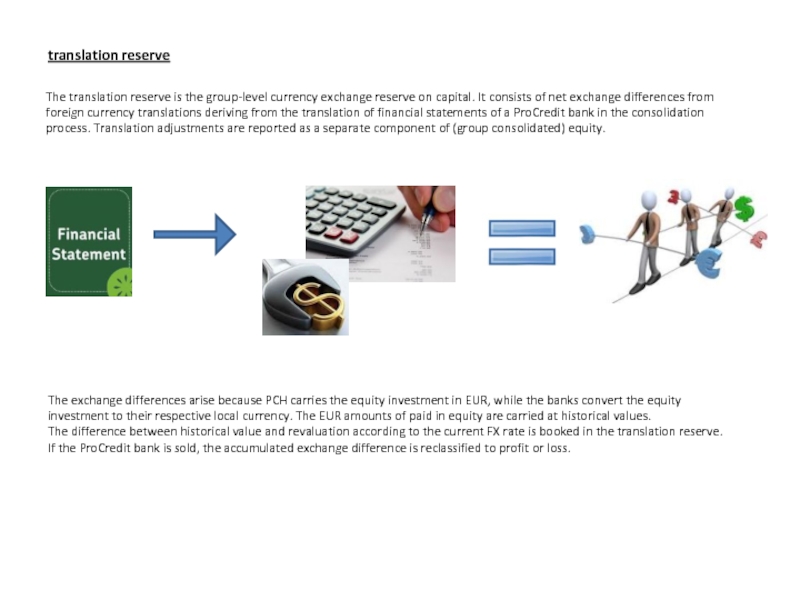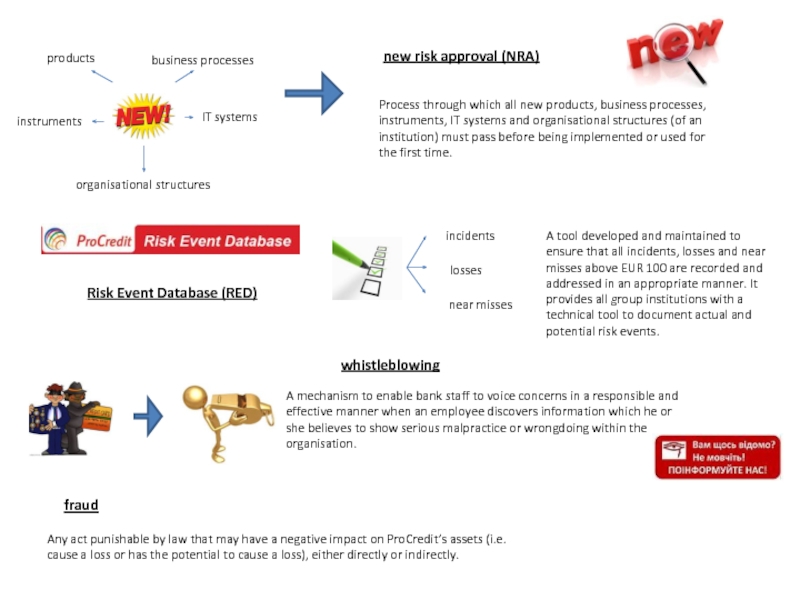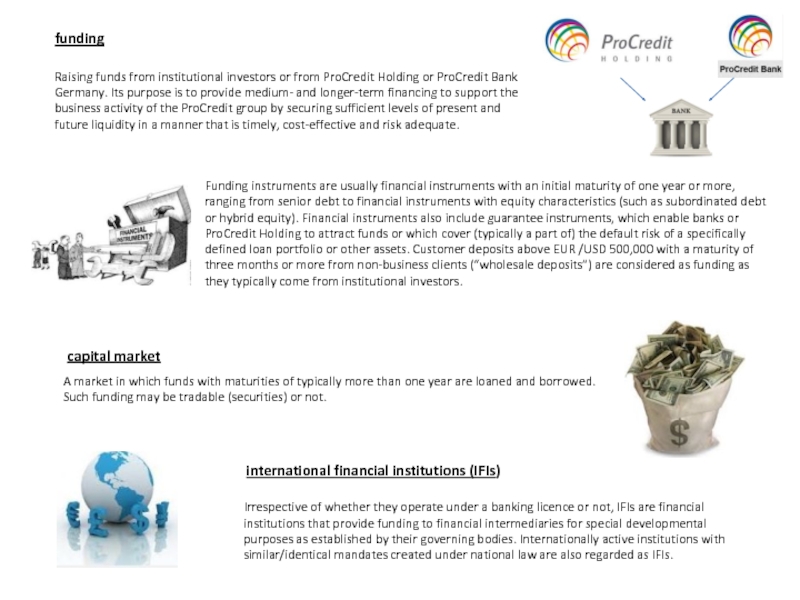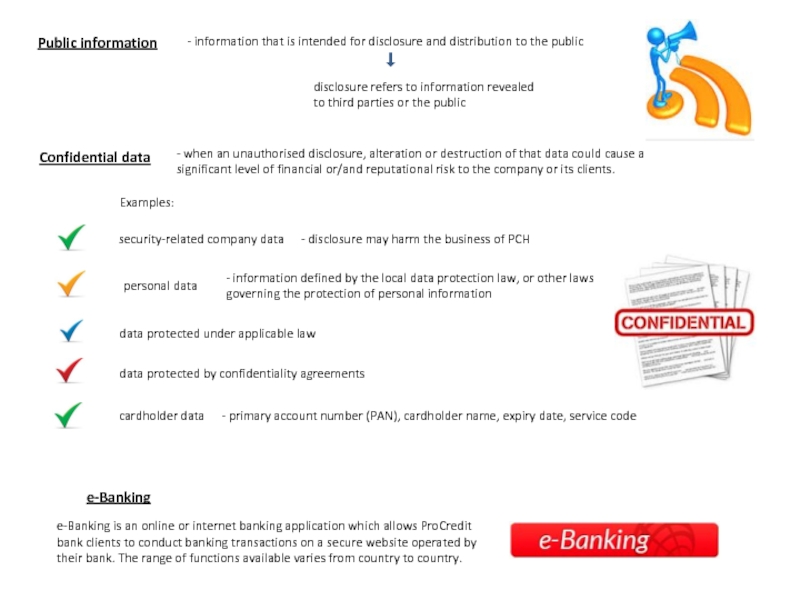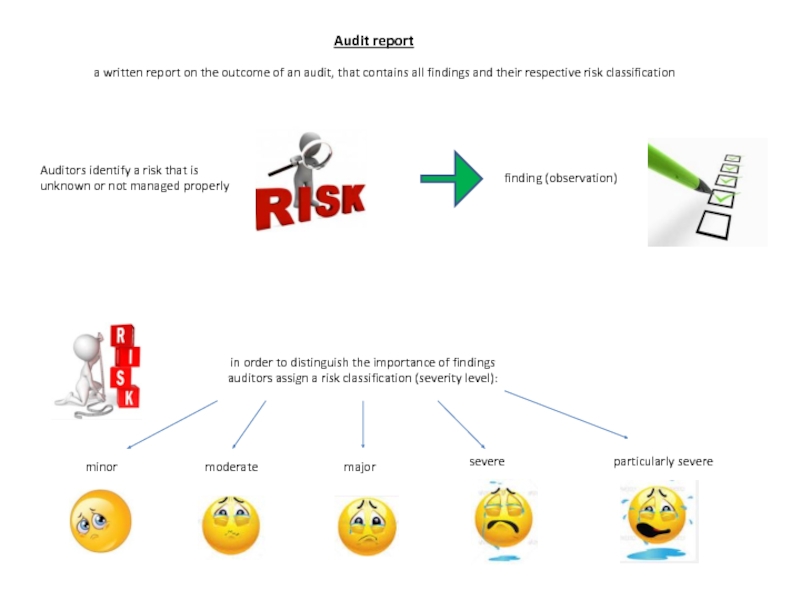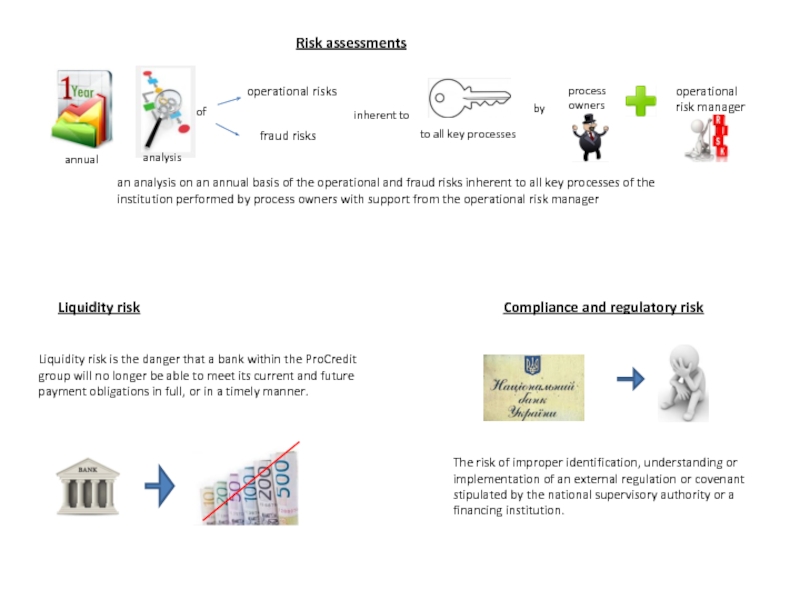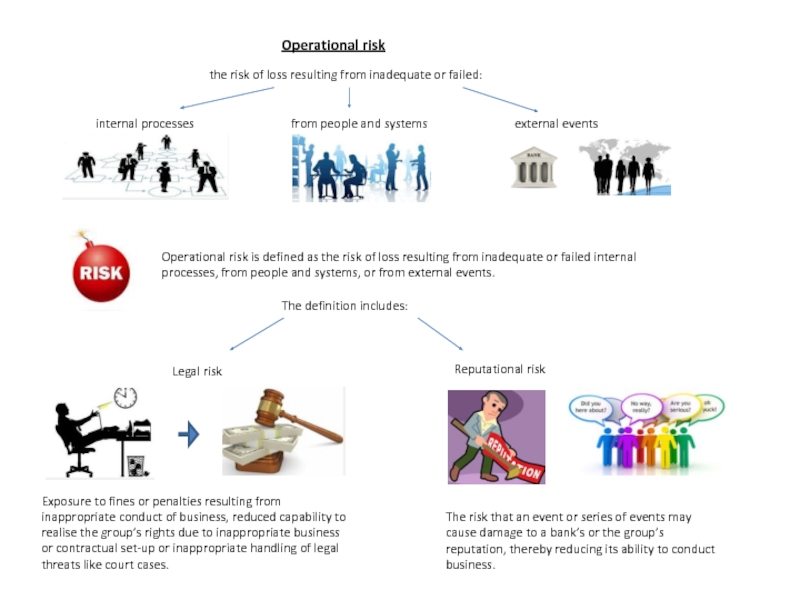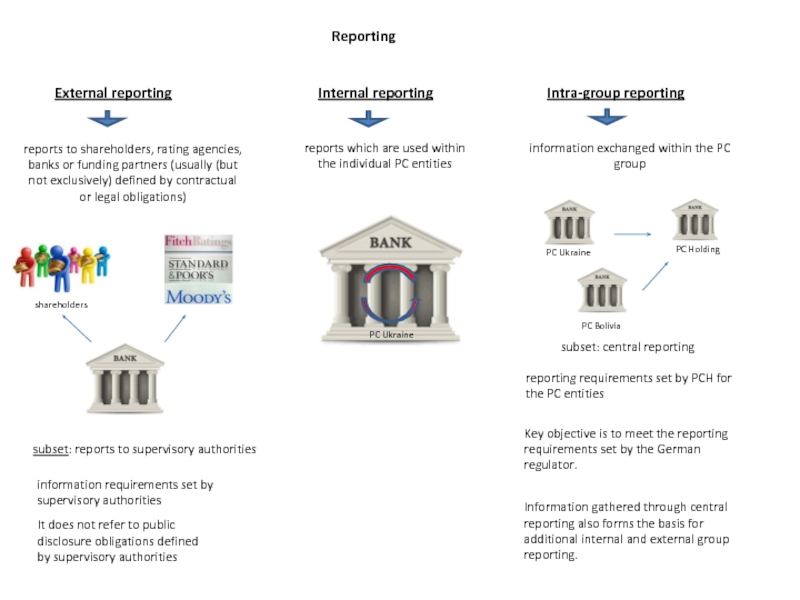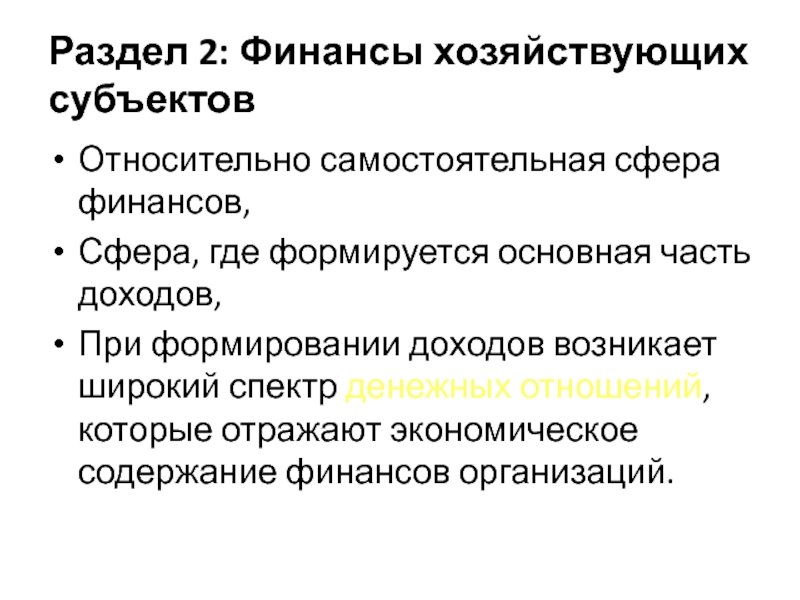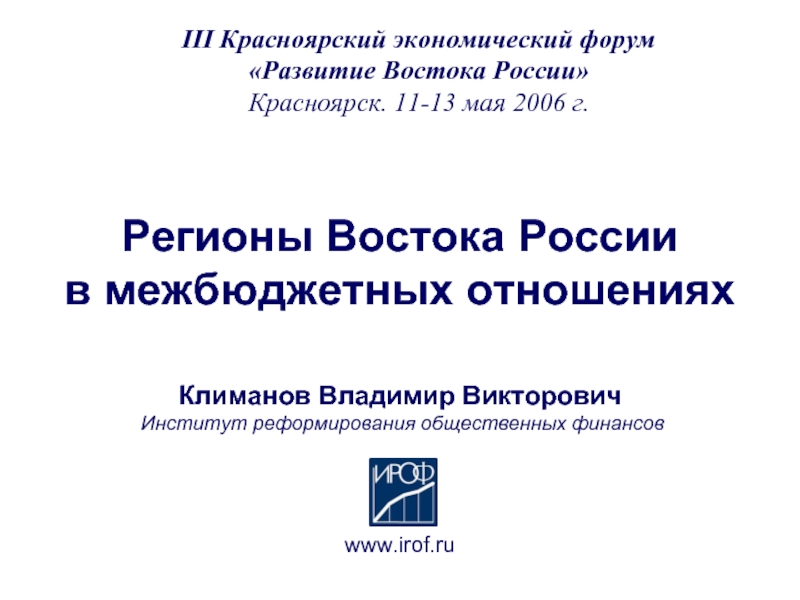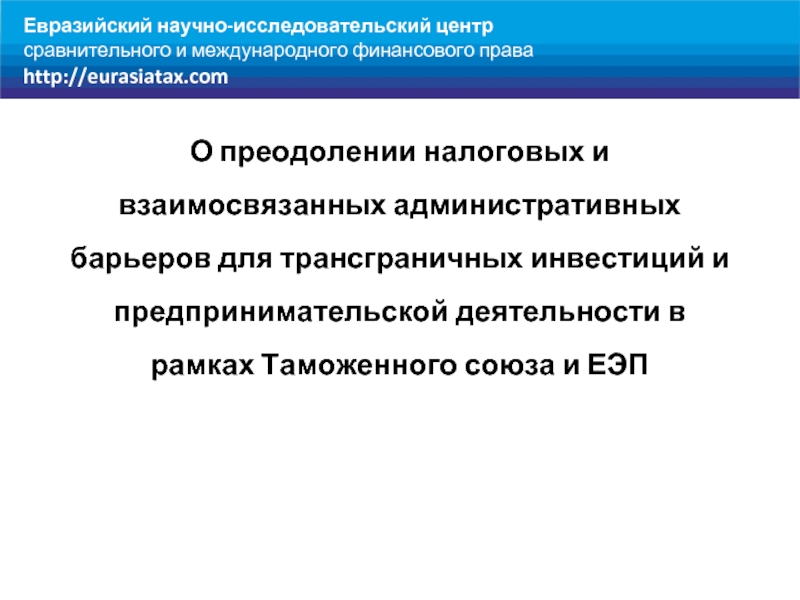a credit transaction (the counterparty) will be unable to meet its contractually agreed obligations towards the bank or will only be able to meet them in part.
Counterparty in the broadest sense is any entity with which one has an exposure that does not result from a financial service offered to clients. For the purpose of this policy counterparties (including issuers) are typically commercial and public banks, governments, central banks and international organisations.
The term credit risk applies to the following risks:
Risks associated with client credit exposures (classic credit risk)
Risks arising from participating interests
Counterparty risk and issuer risk
Country risk
is defined as the risk that the group may not be able to enforce rights over certain assets in a foreign country or that a counterparty in a foreign country is unable to perform an obligation because of specific political, economic or social risks of that foreign country resulting in an adverse effect on credit exposures
In a broad sense country risk is driven by volatile macroeconomic conditions (e.g. volatile FX rates, credit and liquidity crunches), an unstable political situation (e.g. changing political and institutional set-up) and an unfavourable natural environment (e.g. earthquakes, floods, volcanic eruptions).
As a consequence, aspects that are not explicitly covered elsewhere constitute country risk in a specific sense, i.e. convertibility, transferability, expropriation, macroeconomic and security risk .
Principal risk - the risk of losing the amount given to the counterparty or issuer because of the counterparty’s or issuer's failure to repay the exposure in full amount or/and on time
Replacement risk (for derivatives) - the risk that an outstanding deal has to be replaced with an equivalent one at a higher price on the market
Settlement risk (for derivatives) – the risk that arises when one party pays without having confirmation of the counterparty’s counter payment having been settled
Market price risk - the risk that market values of securities will drop as interest rates increase
